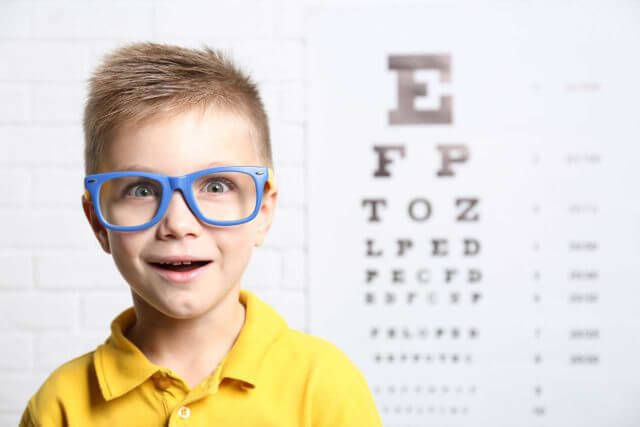
Convergence Insufficiency Treatment in Westminster, Colorado with The Vision Therapy Center at North Park Vision Center
Like basketball players on the same team working together to win the game, your eyes need to work together in order to see properly. When your eyes come together to focus on one single image at the same time, that’s known as convergence. What happens when this doesn’t work on its own? This is a condition called Convergence Insufficiency.
Convergence Insufficiency isn’t connected to visual acuity. This means that you can have 20/20 vision and even pass a standard eye exam, yet still have CI and lack the visual skills critical for reading, writing, and focus. At The Vision Therapy Center at North Park Vision Center, we treat patients from the entire Westminster, Colorado area who have Convergence Insufficiency.
How Do We Treat Convergence Insufficiency?
The most effective way of treating CI is with vision therapy. Using a particular set of visual exercises and special lenses, the eyes can be re-trained to focus on a single point correctly.
Surgery used to be considered an ideal treatment for CI (especially in children), but over time, this was found to be far less effective than strategic exercises and therapies.
Vision Therapy for Convergence Insufficiency
Vision therapy is a group of exercises aimed at improving and strengthening visual functions. It’s often nicknamed physical therapy for the eyes. A combination of visual exercises to teach your eyes how to properly focus together can boost your or your child’s visual skills. Dr. Marcy Rose also uses various types of therapeutic lenses and prisms to train the eyes to focus on things at near and far distances.
While children most often experience CI, recent studies show that the likelihood of developing CI as an adult increases as we get older. Similar to how CI affects kids in school, adults may experience the same symptoms like trouble focusing, short attention spans, headaches and eye fatigue. These can be particularly frustrating in professional environments.
It’s also challenging for an adult patient to recognize these symptoms as vision-related issues because they can often be attributed to common things like stress or exhaustion. Vision therapy can effectively treat these symptoms and teach your eyes to overcome these struggles for long-term benefits.
No two patients are alike. Each has unique needs and their personal lifestyle to consider, whether you’re the parent of a child who is struggling to read, write, or complete school projects, or you’re an adult having difficulty at work with focus and completing tasks. Dr. Marcy Rose looks at the whole patient to determine the right approach for a totally personalized vision therapy program.

Common Symptoms of Convergence Insufficiency
Some of the most common symptoms of CI include things like:
- Blurry vision
- Closing or covering one eye while reading
- Double vision
- Eyestrain
- Headaches
- Short attention span
- Squinting
- Trouble concentrating
- Words on a page seem to move or float
CI can cause school-aged children to have trouble reading. Since the eyes cannot converge properly, it makes words seem to move, jump, or float on the page. As the child strains to focus and read the words properly, they can develop sore, tired eyes or complain about headaches.
In adult patients, these symptoms can manifest themselves at work, in family situations, and more. If you’re working on a project with a team, CI can make it difficult to concentrate and stay focused, read materials, research, work on a computer, and other tasks necessary in your profession. Going out to dinner? CI can make it hard to read a restaurant menu or watch a movie without experiencing blurry or double vision.
If you or your child are experiencing any of these symptoms, talk to us. Schedule a consultation at The Vision Therapy Center at North Park Vision Center and we’ll work together to help treat your CI and get you back to healthy vision.
My Child Has Glasses. Isn’t That Enough?
Glasses and contact lenses are effective at treating refractive errors like nearsightedness, farsightedness, astigmatism, and presbyopia, but they can’t correct everything. CI can’t be fixed by wearing glasses or contacts alone. That’s because they correct visual clarity by refracting (bending) light properly, which allows your eyes to see things clearly. However, they can’t force both eyes to focus on a single image simultaneously. That’s what vision therapy accomplishes.

My Child Passed a School Vision Test. Could They Still Have Convergence Insufficiency?
Did you know that 43% of kids with vision problems can successfully pass a school vision test? School vision screenings are an important test for basic visual acuity, but they often miss some important visual problems like Convergence Insufficiency.
This happens because the school test uses an eye chart placed 20 feet away from the child, so if the child’s vision problems aren’t related to distance, they can still pass the test. So even if your child passed their school vision test, their CI will continue to affect their reading comprehension, writing, and concentration. Without the right treatment, this can continue on into adulthood.
How We Can Help
Vision therapy can lower your child's anxiety, improve their schoolwork, sports, and extracurricular activities, and most importantly, boost their self-confidence. Many children and adults have experienced improved visual functions thanks to vision therapy. Learn more about their stories and see how you can benefit from vision therapy. Each patient has different needs and degrees of visual skills. In order to get the most effective results and achieve a positive outcome, Dr. Marcy Rose will create a customized vision therapy program for you.
If you’ve tried private tutors, medications, or alternative treatments without significant improvement of your or your child’s vision, it’s time to try vision therapy. The Vision Therapy Center at North Park Vision Center can help maximize your visual skills and give you stronger, clearer vision.

